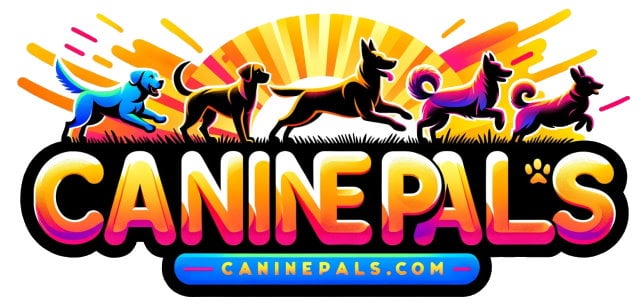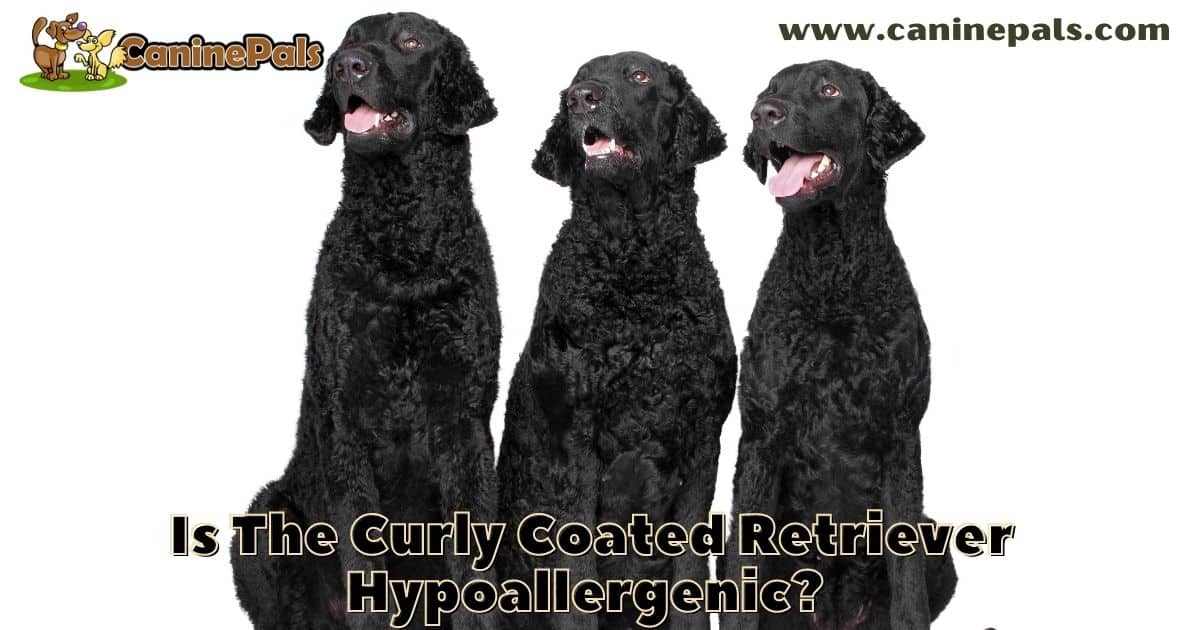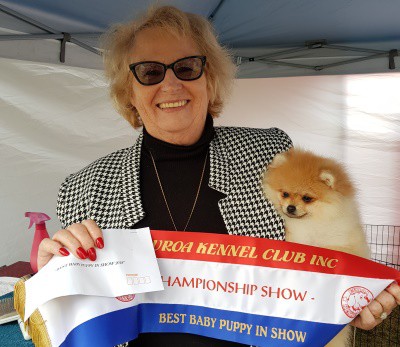Last Updated on March 19, 2024 by Denise Leo. Post first published on April 24, 2022.
Is the Curly-Coated Retriever Hypoallergenic? Do Curly-Coated Retrievers Shed? Find out the answers to your question on this top dog breed at CaninePals.com.
Planning to buy a Curly-Coated Retriever puppy as your pet? Here is some helpful information about this dog breed that will help you deal with him. From health conditions to the size, traits, and cost of this dog, here is everything you would want to learn about this amazing companion.
A life with a dog is the most pawsome, and pawsitive life one wants to live. A dog can be your great companion, confidant, and the most faithful animal on Earth.
Hypoallergenic dogs are the breeds that are less likely to provoke allergies in humans.
There is no such dog breed that is 100% hypoallergenic or allergen-free, but there are dogs that minimize the chances of allergic reaction. The dog breeds that don’t have hair and don’t shed are hypoallergenic dog breeds.
However, the most frequently asked question is, is the Curly Coated Retriever hypoallergenic? Well, not really. Curly Retrievers are not hypoallergenic as they do shed. Curly Coated Retrievers don’t shed much, but these Retrievers shed twice a year, which puts them on the list of breeds that stimulate allergies in humans.
The dogs that shed hairs are more likely to cause allergies as mostly allergens are protein particles found in canine saliva and dander of the dog. These particles stick to the dog’s hairs when he licks himself, and then it enters your household while it sheds.
Since Curly Retrievers have a short and single-layered coats and the dander that causes allergies is found in the coat or skin of this breed, it is termed hypoallergenic. So if you are someone who has allergic reactions to dogs, then this dog breed is not the one for you.
However, those who suffer from seasonal allergies can tolerate curly-coated retrievers in their household. They have a low incidence of stimulating allergic reactions due to less shedding, but they can’t be considered hypoallergenic.
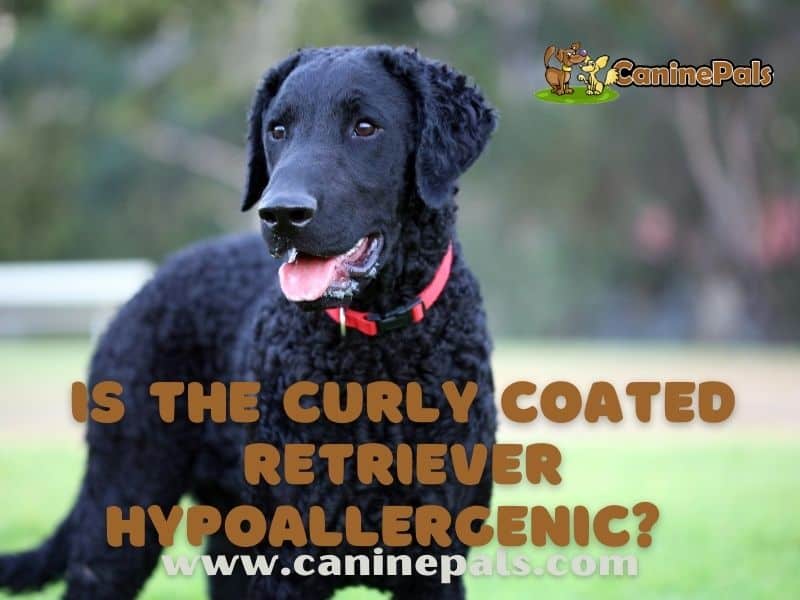
Do Curly Coated Retrievers Shed?
The Curly is a single coated dog breed with no undercoats; this makes it shed less dog hair than the dogs that have undercoats. Curly coat retrievers are known for having the most unusual coats, which shed moderately like twice a year.
Curly Coated Retriever’s Shedding:
Curly coated retrievers shedding is not as much as other dog breeds, but it does shed on average. Comparatively, the shedding usually occurs due to overabundance in the spring and fall seasons, but it can also happen anytime, depending on the dog’s health condition. Although retriever fur does not call for much grooming, if it does not get grooming in regular intervals, then shedding can do some real damage.
Curly Coated Retriever Temperament, Appearance And Traits:
Curly is a well-muscled dog breed that can be either in solid black or solid liver (described as reddish-brown) in color; it is also known by the names wavy coated and flat-coated retrievers.
A Curly Coat Retriever possess a coat of tight, crisp curls that help them repel water and thorn resistance, which prevent damage, unlike other sports that can’t escape such damages due to thin coats.
They are tireless dogs, which makes them work in all-weather from icy lakes to woods.
The look of its dense curls gives an impression that this breed would be difficult to care for, but in reality, they are very easy to care for, and they only require moderate grooming.
One of the most common traits of this retriever is it is very mouthy and loves to chew everything around, be it toys or clothes.
They have short and straight fur on their face. The fur on the curly-coated retriever’s body acts as a protective layer and helps the skin to avoid getting hurt from the sharp sticks and dangerous terrain.
This graceful breed of retrievers is known for their affection and gentleness with their loved ones, but with strangers, they can act aloof. As these retrievers don’t get along much with strangers easily, they can be great watchdogs.
Curlies are more gregarious then other dogs. They want to be independent and need more outdoor exercise.
Curly-Coated Retrievers are so energetic and playful that they need at least 40 minutes of exercise daily.
This breed can be very destructive due to boredom if they are not provided with enough new exercises because they get bored of repetitive training.
The Curly-Coated Retriever is a kind of canine that does not mind having other dogs around, but they do take time to get accustomed to sharing space with new dogs.
Although they are used in many countries as bird hunting companions, apart from their hunting ability, they can be a great companion for jogging and playing.
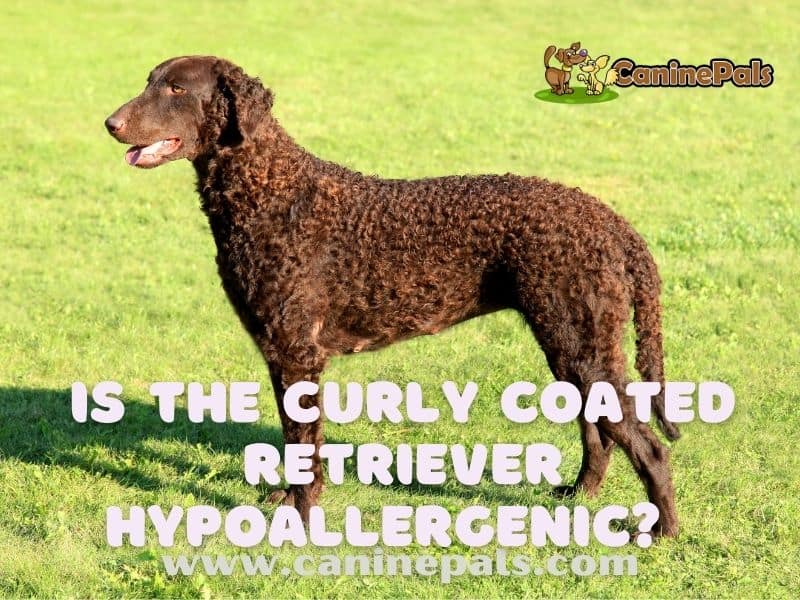
Ways To Reduce The Allergic Impact Of Curly-Coated Retrievers:
Brush them daily: To avoid the impact of the allergic reaction, you have to keep your Retriever’s fur well-groomed; cleaning your pet regularly can definitely make a difference. Brushing the dog’s fur before they come inside the house can reduce the chances of getting allergic as brushing down will take off the allergy-causing particles in the dog’s fur.
Frequent bathing: Frequently bathing your retriever can certainly decrease the allergic reactions as the protein particles and dander in the dog’s body get washed out by bathing. Weekly wash for this breed is recommended; however, excess bathing can also cause skin issues in retrievers, so avoid giving them more showers than the suggested one.
Keep the home healthy: Healthy atmosphere at home can also play an essential part in making the place allergen-free. Consider changing the air filters at your home at regular intervals to decrease airborne allergens. Vacuuming the rugs and cleaning the tile or wood floor with a wet mop can also make the area clean from allergic substances.
The above ways can be beneficial for you to reduce the presence of allergens in your Curly-Coated Retriever’s fur, but it can never be gone for good. These things can only help the allergy sufferer to visit your house and enjoy the company of this beautiful and loving curly-coated retriever for the time being.
Personality:
Curly–Coated Retrievers are confident and alert with a balanced temper. They have an inherent poise and pride, making them shaky while settling with new people. One of the best things about this breed is that even a fully-grown dog tends to have a puppy kind of nature as they don’t get mature easily.
Curly-Coated Retrievers are considered very intelligent and good pickers, they respond well to training, but to keep their interest alive, you need to introduce new exercises.
Size:
A Curly Coated Retriever is a large-sized breed; a male breed is usually 25 to 27 inches tall with 80 to 100 pounds of weight; a femaleRetriever is a little less tall at 23 to 25 inches, and it weights within 65 to 85 pounds.
The Curly as Pets:
If you are thinking of buying a Curly as a pet, then you must know that they are lively and fun-loving dogs and can become a placid member of your family. A curly coated retriever can easily settle in a home environment as he is very loyal and affectionate with its owners.
He also doesn’t need a large den as far as the owners are with him, but he remains calm only when he has adequate exercise. One sensitive trait of these retrievers is that they become miserable when left alone.
Living Space:
Curly-Coated Retrievers are larger-than-life types of breeds that are extremely playful. They require a big area to play and enjoy with their owners. These dogs can’t live in apartments or confined places as they are energetic dogs, and they need a large dwelling with open yards for training and exercise.
Life Expectancy:
This tall breed is a healthy and active dog, the lifespan of a Curly Coated Retriever is usually 10 to 12 years, depending on the dog’s health condition.
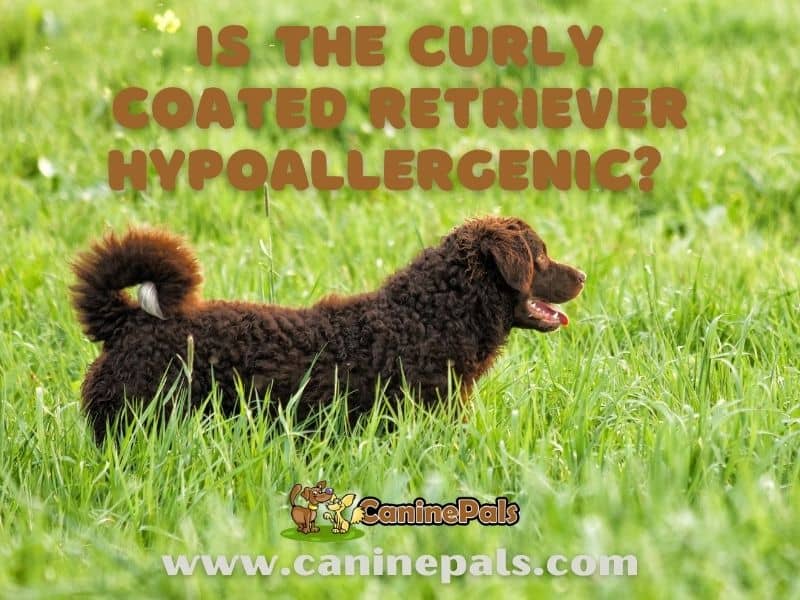
General Health Issues in Curly-coated Retrievers:
Hip and Elbow Dysplasia:
The first and foremost thing you do prior to having a pet is to check his health conditions. A Curly Coated Retriever can face a few common health conditions in his life. One of the most known among them is hip and elbow dysplasia.
Hip dysplasia is an abnormal hip socket formation that causes severe pain in dogs. This condition causes loss of movement, arthritis, and lameness in dogs. Similarly, the dog may experience lameness in elbow dysplasia also due to the abnormal formation in joints of the front legs.
Distichiasis and Entropion:
There are also several eye problems that are common in this breed. Curly-coated retrievers face some severe eye diseases like Distichiasis and Entropion that they inherit or develop over time.
Distichiasis is caused by the hair growth inside the eyelid, while Entropion is a defect in which the eyelid rolls inwards, which results in eyelashes rubbing the cornea; these are excruciatingly painful conditions that can lead to blindness if not treated in the first hand.
Cancer:
Curly Coated Retrievers are more susceptible to certain types of cancers that they may develop at an early age, such as Hemangiosarcoma, Lymphoma, and Osteosarcoma. The most common cancer that affects this breed the most is Hemangiosarcoma. This tumor is a type of bleeding that usually forms in the spleen but affects other organs.
Curly Coated Retrievers are more prone to Lymphoma than any other dog. This type of cancer produces abnormal white blood cells in the body that are called lymphocytes. Since the white blood cells travel in almost all parts of the body, this cancer can be found almost anywhere. Some of the symptoms of Lymphoma are shortness of breathing, weight loss, and swollen glands.
One of the most affected organs of a dog’s body is the bones. Diseases related to bones are very recurrent in dogs; they dislocate, break and fracture their bones every now and then. Osteosarcoma is one such type of tumor that affects bones; this tumor commonly afflicts middle-aged dogs and causes lameness and extreme leg pain.
Moreover, the Curly is prone to the normal bacterial and viral infections that most dogs get, such as rabies, parvo, and distemper. Pattern baldness is also a common heritable condition in Curly-coated retrievers.
However, all of these illnesses are curable and can be treatable or removed by proper medication and surgeries. Whenever you notice any sort of abnormal symptom in your pet, you need to immediately seek veterinary help.
Cost:
Curly-Coated Retrievers have a purebred heritage and are usually considered high-energy dogs. These features make them unique, and they are not among the common pets that you can easily get. Since these dogs make great pets, this Retriever pup will cost you around $1000 to $1500, which is quite modest compared to this breed’s abilities.
Their prices may vary depending on their age; an older puppy would definitely be less costly as compared to the younger ones.
Breed History:
Learning some little history about your pet or hunting companion is always interesting. The curly coated retriever’s breed was first found in England in 18 century; their traces can’t be found before that in history. They are the descendants of two now-extinct breeds, Retrieving Setter and English Water Spaniel. This breed garnered popularity in England’s first dog show in 1860 for its unique and elegant look.
These active dogs earned a place as cherished members of British sportsmen in the 19th century. During this period, the curly-coated retrievers remained in high demand among the hunters for their steady disposition and tender mouth. Hunters greatly admired Curlies and exported them to Australia, the USA, and New Zealand to accompany them.
Popularly known as one of the oldest and the tallest recognized retriever breeds, these curly-coated retrievers are called wickedly smart gundogs and peerless swimmers in the sports group that comprises four types of dogs. These super active retrievers are best in competing in the dog sports like flyball, obedience, field trials, and agility.
The Curly-Coated Retriever is among the oldest of retrievers although it’s unclear of his origins. Some think his ancestors included the Poodle, the Setter, the Newfoundland, and the English Water Spaniel. He’s agile and strong and a sturdy work dog. He can retrieve game in the iciest waters or the heaviest cover.
He’s perseverant and courageous and was popular among English gamekeepers. He can hunt equally well on land and water. His coat’s color can be liver or black. It has crisp, tight, small, water-resistant curls. He has boundless energy and is very reliable. He’s willing to please and is a great companion. He needs regular exercise. His coat only needs occasional bathing. His height is 23 – 27 inches.
Conclusion:
After mentioning all the good points about this specific dog breed, I would like to conclude that if you are looking for a hypoallergenic dog breed, then don’t opt for getting a Curly-Coated Retriever onboard; they are not the ones.
Although these unique-looking adorable dogs do look like the ones that are hypoallergenic, they still shed their fur. This gregarious dog can be a great companion, but it’s not the perfect breed to have for those who have an allergy sufferer in the house.
Copyright CaninePals. All Rights Reserved.
References and Further Reading:
American Kennel Club Curly Coated Retriever Information
